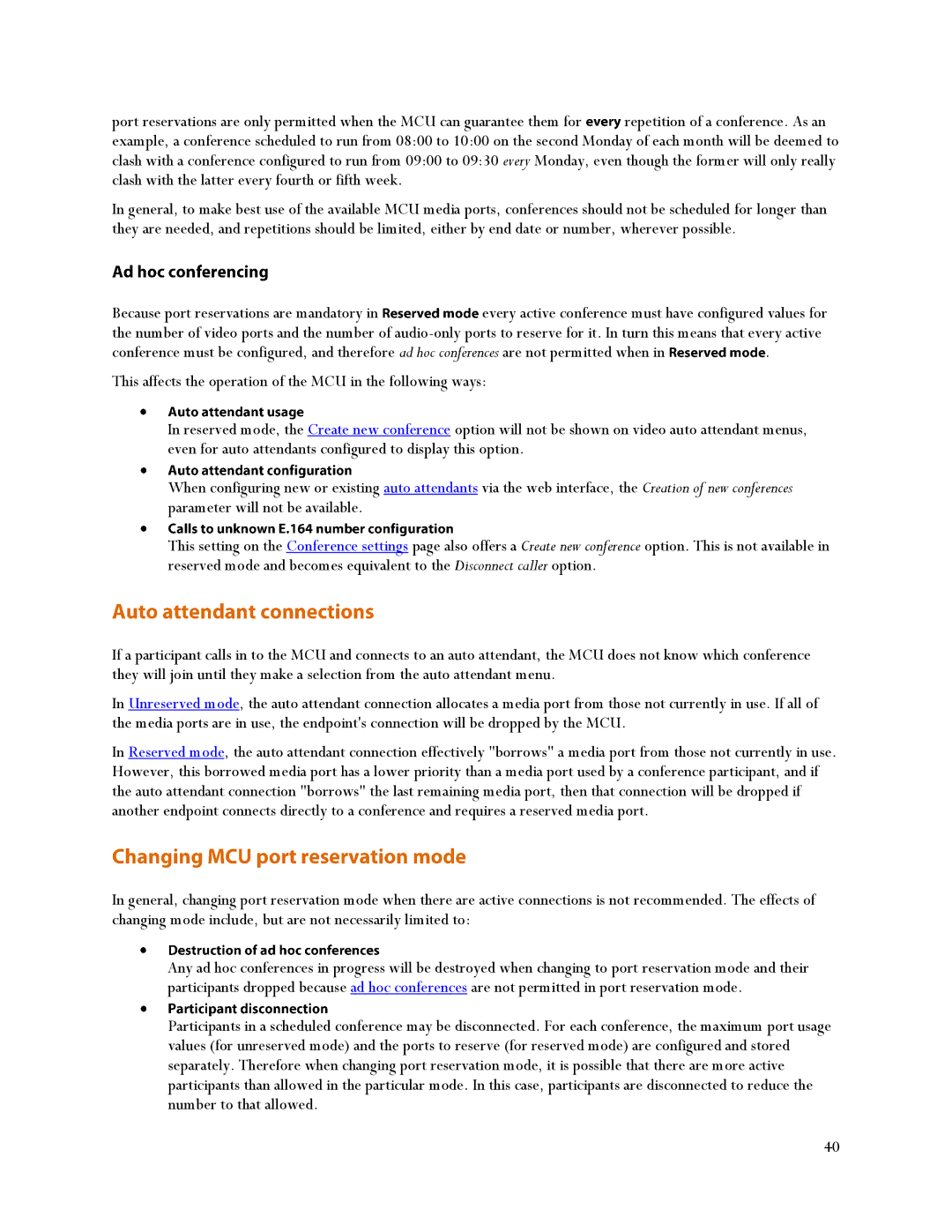
port reservations are only permitted when the MCU can guarantee them for repetition of a conference. As an example, a conference scheduled to run from 08:00 to 10:00 on the second Monday of each month will be deemed to clash with a conference configured to run from 09:00 to 09:30 every Monday, even though the former will only really clash with the latter every fourth or fifth week.
In general, to make best use of the available MCU media ports, conferences should not be scheduled for longer than they are needed, and repetitions should be limited, either by end date or number, wherever possible.
Because port reservations are mandatory inevery active conference must have configured values for the number of video ports and the number of
conference must be configured, and therefore ad hoc conferences are not permitted when in | . |
This affects the operation of the MCU in the following ways:
In reserved mode, the Create new conference option will not be shown on video auto attendant menus, even for auto attendants configured to display this option.
When configuring new or existing auto attendants via the web interface, the Creation of new conferences parameter will not be available.
This setting on the Conference settings page also offers a Create new conference option. This is not available in reserved mode and becomes equivalent to the Disconnect caller option.
If a participant calls in to the MCU and connects to an auto attendant, the MCU does not know which conference they will join until they make a selection from the auto attendant menu.
In Unreserved mode, the auto attendant connection allocates a media port from those not currently in use. If all of the media ports are in use, the endpoint's connection will be dropped by the MCU.
In Reserved mode, the auto attendant connection effectively "borrows" a media port from those not currently in use. However, this borrowed media port has a lower priority than a media port used by a conference participant, and if the auto attendant connection "borrows" the last remaining media port, then that connection will be dropped if another endpoint connects directly to a conference and requires a reserved media port.
In general, changing port reservation mode when there are active connections is not recommended. The effects of changing mode include, but are not necessarily limited to:
Any ad hoc conferences in progress will be destroyed when changing to port reservation mode and their participants dropped because ad hoc conferences are not permitted in port reservation mode.
Participants in a scheduled conference may be disconnected. For each conference, the maximum port usage values (for unreserved mode) and the ports to reserve (for reserved mode) are configured and stored separately. Therefore when changing port reservation mode, it is possible that there are more active participants than allowed in the particular mode. In this case, participants are disconnected to reduce the number to that allowed.
40
